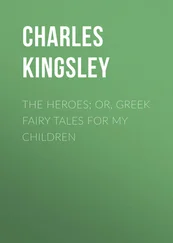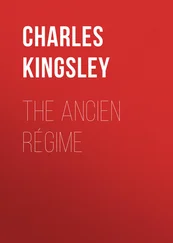Charles Kingsley - The Good News of God
Здесь есть возможность читать онлайн «Charles Kingsley - The Good News of God» — ознакомительный отрывок электронной книги совершенно бесплатно, а после прочтения отрывка купить полную версию. В некоторых случаях можно слушать аудио, скачать через торрент в формате fb2 и присутствует краткое содержание. Жанр: foreign_prose, foreign_religion, Философия, foreign_psychology, foreign_antique, на английском языке. Описание произведения, (предисловие) а так же отзывы посетителей доступны на портале библиотеки ЛибКат.
- Название:The Good News of God
- Автор:
- Жанр:
- Год:неизвестен
- ISBN:нет данных
- Рейтинг книги:4 / 5. Голосов: 1
-
Избранное:Добавить в избранное
- Отзывы:
-
Ваша оценка:
- 80
- 1
- 2
- 3
- 4
- 5
The Good News of God: краткое содержание, описание и аннотация
Предлагаем к чтению аннотацию, описание, краткое содержание или предисловие (зависит от того, что написал сам автор книги «The Good News of God»). Если вы не нашли необходимую информацию о книге — напишите в комментариях, мы постараемся отыскать её.
The Good News of God — читать онлайн ознакомительный отрывок
Ниже представлен текст книги, разбитый по страницам. Система сохранения места последней прочитанной страницы, позволяет с удобством читать онлайн бесплатно книгу «The Good News of God», без необходимости каждый раз заново искать на чём Вы остановились. Поставьте закладку, и сможете в любой момент перейти на страницу, на которой закончили чтение.
Интервал:
Закладка:
And how shall we learn this? How shall the bottomless pit, if we fall into it, be but a pathway to the everlasting rock?
David tells us:
‘Out of the deep have I cried unto thee, O Lord.’
He cried to God.
Not to himself, his own learning, talents, wealth, prudence, to pull him out of that pit. Not to princes, nobles, and great men. Not to doctrines, books, church-goings. Not to the dearest friend he had on earth; for they had forsaken him, could not understand him, thought him perhaps beside himself. Not to his own good works, almsgivings, church-goings, church-buildings. Not to his own experiences, faith’s assurances, frames or feelings. The matter was too terrible to be plastered over in that way, or in any way. He was face to face with God alone, in utter weakness, in utter nakedness of soul, He cried to God himself. There was the lesson.
God took away from him all things, that he might have no one to cry to but God.
God took him up, and cast him down: and there he sat all alone, astonished and confounded, like Rizpah, the daughter of Aiah, when she sat alone upon the parching rock. Like Rizpah, he watched the dead corpses of all his hopes and plans, all for which he had lived, and which made life worth having, withering away there by his side. But it was told David what Rizpah, the daughter of Aiah, had done. And it is told to one greater than David, even to Jesus Christ, the Son of David, what the poor soul does when it sits alone in its despair. Or rather it need not be told him; for he sees all, weeps over all, will comfort all: and it shall be to that poor soul as it was to poor deserted Hagar in the sandy desert, when the water was spent in the bottle, and she cast her child—the only thing she had left—under one of the shrubs and hurried away; for she said, ‘Let me not see the child die.’ And the angel of the Lord called to her out of heaven, saying, ‘The Lord hath heard the voice of the lad where he is;’ and God opened her eyes, and she saw a well of water.
It shall be with that poor soul as it was with Moses, when he went up alone into the mount of God, and fasted forty days and forty nights amid the earthquake and the thunderstorm, and the rocks which melted before the Lord. And behold, when it was past, he talked face to face with God, as a man talketh with his friend, and his countenance shone with heavenly light, when he came down triumphant out of the mount of God.
So shall it be with every soul of man who, being in the deep, cries out of that deep to God, whether in bloody India or in peaceful England. For He with whom we have to do is not a tyrant, but a Father; not a taskmaster, but a Giver and a Redeemer. We may ask him freely, as David does, to consider our complaint, because he will consider it well, and understand it, and do it justice. He is not extreme to mark what is done amiss, and therefore we can abide his judgments. There is mercy with him, and therefore it is worth while to fear him. He waits for us year after year, with patience which cannot tire; therefore it is but fair that we should wait a while for him. With him is plenteous redemption, and therefore redemption enough for us, and for those likewise whom we love. He will redeem us from all our sins: and what do we need more? He will make us perfect, even as our Father in heaven is perfect. Let him then, if he must, make us perfect by sufferings. By sufferings Christ was made perfect; and what was the best path for Jesus Christ is surely good enough for us, even though it be a rough and a thorny one. Let us lie still beneath God’s hand; for though his hand be heavy upon us, it is strong and safe beneath us too; and none can pluck us out of his hand, for in him we live and move and have our being; and though we go down into hell with David, with David we shall find God there, and find, with David, that he will not leave our souls in hell, or suffer his holy ones to see corruption. Yes; have faith in God. Nothing in thee which he has made shall see corruption; for it is a thought of God’s, and no thought of his can perish. Nothing shall be purged out of thee but thy disease; nothing shall be burnt out of thee but thy dross; and that in thee shall be saved, and live to all eternity, of which God said at the beginning, Let us make man in our own image. Yes. Have faith in God; and say to him once for all, ‘Though thou slay me, yet will I love thee; for thou lovedst me in Jesus Christ before the foundation of the world.’
SERMON IX
THE LOVE OF GOD ITS OWN REWARD
I call heaven and earth to record this day against you, that I have set before you life and death, blessing and cursing; therefore choose life that both thou and thy seed may live; that thou mayest love the Lord thy God, and that thou mayest cleave unto him, for he is thy life and the length of thy days, that thou mayest dwell in the land which the Lord God sware unto thy fathers Abraham, Isaac, and Jacob to give them.
I spoke to you last Sunday on this text. But there is something more in it, which I had not time to speak of then.
Moses here tells the Israelites what will happen to them if they keep God’s law.
They will love God. That was to be their reward. They were to have other rewards beside. Beside loving God, it would be well with them and their children, and they would live long in the land which God had given them. But their first reward, their great reward, would be that they would love God.
If they obeyed God, they would have reason to love him.
Now we commonly put this differently.
We say, If you love God, you will obey him; which is quite true. But what Moses says is truer still, and deeper still. Moses says, If you obey God, you will love him.
Again we say, If you love God, God will reward you; which is true; though not always true in this life. But Moses says a truer and deeper thing. Moses says that loving God is our reward; that the greatest reward, the greatest blessing which a man can have, is this—that the man should love God. Now does this seem strange? It is not strange, nevertheless.
For there are two sorts of faith; and one must always, I sometimes think, come before the other.
The first is implicit faith—blind faith—the sort of faith a child has in what its parents tell it. A child, we know, believes its parents blindly, even though it does not understand what they tell it. It takes for granted that they are right.
The second is experimental faith—the faith which comes from experience and reason, when a man looks back upon his life, and on God’s dealings with him; and then sees from experience what reason he has for trusting and loving God, who has helped him onward through so many chances and changes for so many years.
Now some people cry out against blind implicit faith, as if it was childish and unreasonable. But I cannot. I think every one learns to love his neighbour, very much as Moses told the Jews they would learn to love God; namely, by trusting them somewhat blindly at first.
Is it not so? Is it not so always with young people, when they begin to be fond of each other? They trust each other, they do not know why, or how. Before they are married, they have little or no experience of each other; of each other’s tempers and characters: and yet they trust each other, and say in their hearts, ‘He can never be false to me;’ and are ready to put their honour and fortunes into each other’s hands, to live together for better for worse, till death them part. It is a blind faith in each other, that, and those who will may laugh at it, and call it the folly and rashness of youth. I do not believe that God laughs at it: that God calls it folly and rashness. It surely comes from God.
For there is something in each of them worth trusting, worth loving. True, they may be disappointed in each other; but they need not be. If they are true to themselves; if they will listen to the better voice within, and be true to their own better feelings, all will be well, and they will find after marriage that they did not do a rash and a foolish thing, when they gave up themselves to each other, and cast in their lot together blindly to live and die.
Читать дальшеИнтервал:
Закладка:
Похожие книги на «The Good News of God»
Представляем Вашему вниманию похожие книги на «The Good News of God» списком для выбора. Мы отобрали схожую по названию и смыслу литературу в надежде предоставить читателям больше вариантов отыскать новые, интересные, ещё непрочитанные произведения.
Обсуждение, отзывы о книге «The Good News of God» и просто собственные мнения читателей. Оставьте ваши комментарии, напишите, что Вы думаете о произведении, его смысле или главных героях. Укажите что конкретно понравилось, а что нет, и почему Вы так считаете.












